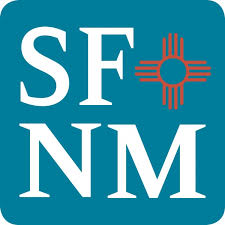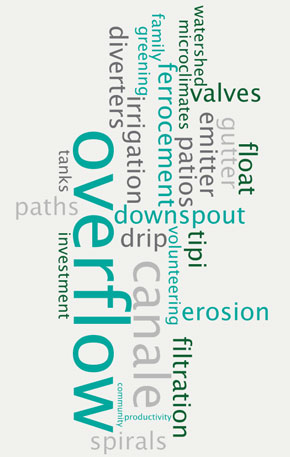The PermaDesign Weblog, with Nate Downey and Melissa McDonald!
Give Weeds a Chance

From my latest Permaculture in Practice Column:
When I was a boy, Doctor Spear, the family dentist, would try to count my freckles. As a red-haired, fish-belly-white kid, it was clear my good doctor was embarking on a job he’d never finish. I hated the Novocaine shots, the drilling, and the lectures about candy, but I also didn’t appreciate Spear’s emotionally piercing ritual.
At recess, being called Freckle Face was okay compared to the other insults tossed my way. Plus, Mom was right. Being the short, fat, cowlick-laden kid with infinite freckles is character-building. Not only did it give me a profound understanding of the “infinite,” I also think my speckled past gaveme a little more respect and sympathy for weeds.
With a few loudmouths complaining about Santa Fe’s “weed problem,” it’s important for us normal, blemished-inour-own-beautiful-and-unique-ways people to stand up to the haters. In the desert, a weed is typically a plant about which people are too obtuse to understand. Weeds are plants that people have not yet learned to appreciate or to figure out some beneficial use for. The cause of weed management is certainly not worth poisoning our sidewalks, streets, open spaces, rivers, and children. Last month marked the anniversary of the publication of Rachel Carson’s Silent Spring. Have we learned nothing in 55 years?
Listen: Your idea of a messy yard, your concept of a “clean” median, and your misplaced need to control nature should mean nothing when compared to the ravages of weed-killing chemicals. Perhaps, if we had enough money in the public purse to pay people to pullweeds, we could do that to appease your psychotic fetishes, but the fact is that considerable scientific evidence has led seven European countries to ban or significantly restrict RoundUp, Monsanto’s famous herbicide. The body of evidence that points to the family of herbicides as deadly is overwhelming.
We live in a land where we get only 12 inches of rain annually. We have destroyed this arid region with overgrazing, deforestation, and sprawling development. As a result, our soils do not absorb moisture in the way that they used to, plant material no longer protects the crust of the ever-brittle earth, and our impervious roads, roofs, parking lots, and patios tend to create erosion when it rains rather than provide the helpful amount of moisture that these surfaces might otherwise deliver.
We should thank God for weeds. They grow. They’re alive. They heal the skin of our only planet. We should bless them and keep them and knowthat they shade our land. They offer wind protection. They hug, kiss, caress, and hold the soil. They bestow habitat and food for birds, bees, and other forms of biodiversity that our local farmers need in order to feed us.
The freckles on my face have mostly faded. Doctor Spear must be dead by now. Time heals so much if you let it. Let’s be patient. Let’s be calm. Let’s let weeds do their jobs, and let’s not disgrace our planet just because of theway it looks.
07/05/2017 | (2) Comments










Comments
At one time, bacteria was thought of as “bad” and humans found a way to capitalize from that. Now, we learn of “good bacteria” and humans are capitalizing on THAT. Perhaps if humans found a way to earn money off of volunteer plants that are not welcomed nor honored, we might see a turn-around. Until then, we need to remember that Mother Nature is not stupid, capricious and does not favor humans over the rest of her creations. It’s the only way we can be in accord with the planet, because Nature always wins.
Well said, Katie!